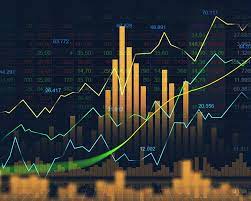Forex trading is an exciting and fast-paced financial market that can offer high returns. The key to success in forex trading is choosing the right broker. There are hundreds of forex brokers out there, each with their trading platforms, fees, and features. Choosing the right forex broker can be tricky, but it’s essential to do your research to avoid scams and ensure your funds’ safety. In this comprehensive guide, we will walk you through the process of choosing the right forex broker, so read on!
License and Regulations
When choosing a forex broker, the first and foremost consideration should be whether the broker is licensed and regulated. A regulated broker is authorized by a financial authority to operate and is subject to regulatory oversight, ensuring they comply with strict standards of financial conduct. In most countries, the financial regulator maintains a list of regulated brokers. Ensure that the broker you choose is authorized and regulated by a reputable regulatory body. Some popular regulatory bodies include the Financial Conduct Authority (FCA) in the UK, the Australian Securities and Investment Commission (ASIC), and the US Commodity Futures Trading Commission (CFTC).
Trading Platform and Tools
The trading platform is where you will be making trades, so it’s essential to choose a broker with a platform that suits your trading needs. Many brokers offer their trading platforms, and some use popular third-party platforms such as MetaTrader 4 and 5 (MT4 and MT5), cTrader, or TradingView. Ensure the platform offers the tools you need, including charting tools, market news, technical analysis, and risk management tools.
Fees and Commissions
Forex brokers make money through spreads, which are the differences between the buying and selling prices of currency pairs. Brokers may also charge commissions for specific services such as account deposits, withdrawals, or inactivity fees. It’s essential to consider a broker’s fees to ensure the costs don’t eat into your profits. Some brokers offer commission-free accounts, but the spread is typically higher. Check the broker’s website for a detailed fee structure, including all the costs associated with trading.
Education and Support
Forex trading can be complex, and it’s essential to choose a broker that offers educational resources for beginner traders. Many brokers offer webinars, training courses, and trading guides to help you improve your trading skills. Good customer support is also crucial, especially for those new to trading, to help you navigate the broker’s platform and any trading-related issues that arise.
Safety and Security
The safety of your funds is paramount when choosing a forex broker. Ensure that the broker has measures to keep your funds safe, such as segregated accounts, which keep your funds separate from the broker’s operating funds. A reputable broker should also use SSL encryption on their website and offer two-factor authentication to protect your account. Check the broker’s website for their security measures and ensure your funds are insured against loss of capital.
Conclusion:
Choosing the right forex broker is critical for any trader’s success. Consider the broker’s regulatory status, trading platform and tools, fees and commissions, education and support, and safety and security when making your decision. Ultimately, the right broker for you depends on your trading style and preferences. Take the time to research and compare brokers, and don’t rush into a decision. The forex market can be volatile, so it’s essential to choose a broker that you can trust to execute your trades accurately and efficiently. Happy trading!



